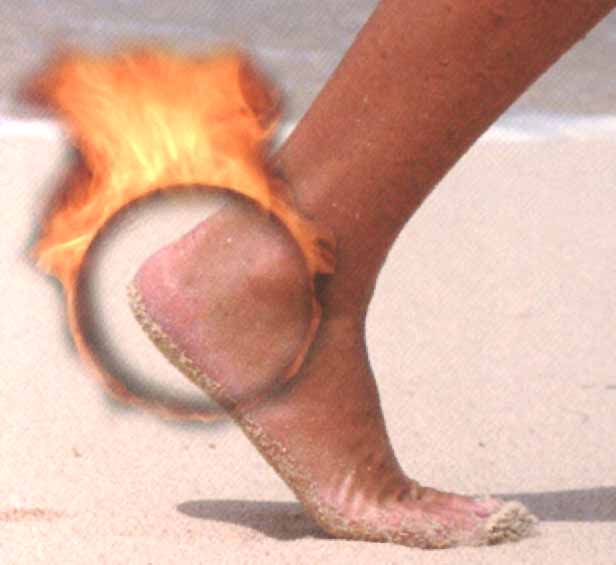
But did you know a misalignment of your body no matter how small, can wreak havoc from your head to your toes!
Pain is a sign that something is wrong, and should never be ignored! A complete evaluation from your physician is always recommended to rule out any significant problems! Still plagued with back pain after a clean bill of health? Take a look at your feet! Ask yourself these questions -
* Does one side of your shoe wear out before the other?
* Are your toes crooked?
* Do your feet point in or out excessively when you walk?
* Do you suffer from heel pain, knee pain or shin pain in addition to your back pain?
* Do you frequently sprain your ankle?
* Do your feet hurt in general?
If you answered yes to any of these questions, perhaps it's time to look more closely at your feet!
The main function of your feet is to act as shock absorbers as you shift your weight with each step you take. Structural problems, such as your feet rolling inward, called over pronation, can cause problems all the way up to your back!
The rolling of your foot inwards causes the arch to flatten and collapse under the body's weight. This continued stress could cause deformities of the foot over time, such as misaligned bones, hammertoes, bunions, knee pain and back pain.
With the inward rolling of the foot, the lower leg begins to rotate internally. This rotation may cause the pelvis to tilt forward, thus increasing the curve of the low back. Excessive curvature can create tightness and stiffness in the low back resulting in pain!
Foot orthotics can control the over pronation of your feet, which has been shown to aide in decreasing back pain in select individuals!
What Are Orthotics?
Orthotics are mechanical devices to assist in the correction of deformities or disabilities. Foot orthotics are things like heel cups and shoe inserts, which help realign the foot through compensation and stabilization techniques.
Many types of shoe inserts are available over-the-counter. Shoe inserts provide complete foot support coupled with padding for comfort. But, the best solution for poor foot positioning resulting in low back pain is custom-made orthotics.
Custom orthotics are made by a trained orthotist, who makes an impression of your feet to determine and duplicate the deformities. Then they can custom make an appropriate orthotic to help correct the misalignments.
Types Of Orthotics
1. Early childhood orthotics. These devices are utilized in children who demonstrate biomechanical walking problems.
2. Functional orthotics. These devices are often utilized to correct defects in the foot, such as high arches or flat feet (also known as planus). These inserts use specialized techniques such as wedges to adjust the heel and alignment.
3. Weight-dispersive or accommodating orthotics. These devices utilize special padding to relieve pain in the feet.
4. Supportive orthotics. These devices are commonly used to treat problems with the arches.
Nobody's perfect! But even the smallest of misalignments can cause pain! And wouldn't it be nice for back pain to disappear with something as simple as placing an insert in your shoes? Orthotics are not the answer for all types of back pain, but they certainly can't hurt to attempt to keep your foot in the best possible alignment!
It is best to attain advice from a qualified medical professional before attempting to correct major foot deformities on your own, but typically the over-the-counter products are not designed for the purpose of major corrections.
What To Expect
Typically, I will have a custom-made orthotic created from a mold of your feet. Once the mold is taken, a trained orthotist will create a unique insert especially for your foot.
But once the orthotic is made, the work is not done. Care must be taken to avoid further discomfort. Sometimes adjustments must be made for comfort. And you must keep in mind that now your foot is in the correct alignment, it will take time for your body to adjust.
Frequent skin checks are often recommended, especially in the beginning to avoid skin breakdowns and irritation. And, don't be surprised if your back pain feels worse - any change in your alignment may cause temporary discomfort. But, keep on your wearing schedule and inform us of any changes in pain or skin integrity. But, with a little persistence, your back pain may dissipate over time, once your body gets used to correct alignment.
Also the reverse can be true. Only a physician can determine if your lower back problems are causing foot pain, and this is usually related to radiculopathy. I will write more about this next week.
-Dr Timm








